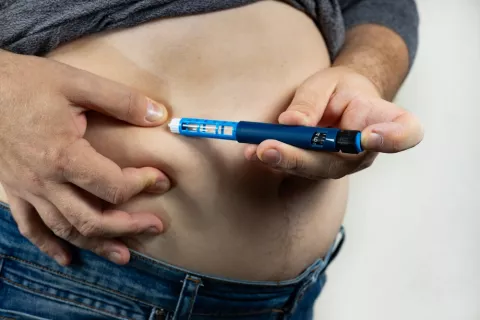During the seasonal flu season, vaccination campaigns against COVID-19 continue to be carried out, especially in the case of vulnerable populations due to chronic diseases or immunosuppression, or due to their advanced age. However, the case of a 62-year-old German who has been vaccinated against SARS-CoV-2 infection on more than 200 occasions is worthy of study and may provide key information about how the human immune system reacts to such a number of infections. medicines.
In a fascinating study carried out by specialists from the Friedrich-Alexander University of Erlangen-Nuremberg (FAU) and the University Hospital of Erlangen, the exceptional case of this man who has been vaccinated against COVID-19 has been explored.
217 times in a period of just over two years (29 months). The research team discovered it through newspaper reports and sparked his curiosity to investigate the consequences of hypervaccination on the immune system.
Before this research, there was much debate in the scientific community about how repeated exposure to vaccine antigens could influence the effectiveness of immune cells. Contrary to concerns that these cells could become less efficient, the study revealed that the subject’s immune system not only remained fully functional, but, surprisingly, showed significantly elevated levels of certain immune cells and antibodies against SARS-CoV. -2 compared to people who had only received three doses of vaccine. These findings have been published in the prestigious journal The Lancet Infectious Diseases.
In Germany, more than 60 million people have been vaccinated against SARS-CoV-2, and many of them have received multiple doses. However, the case of the man investigated, who claims to have received 217 vaccines for personal reasons and has official confirmation of 134 of these, is undoubtedly extraordinary.
“We learned about its existence through newspaper articles,” explains Professor Dr. Kilian Schober of the Microbiological Institute – Clinical Microbiology, Immunology and Hygiene. “We then contacted him and invited him to undergo several tests in Erlangen. He was also very interested in it.” Schober and his colleagues wanted to find out the consequences of this hypervaccination: How does it change the response of the immune system?
Significant increase in antibodies against SARS-CoV-2
The research included analysis of blood samples collected over several years, allowing scientists to closely assess an individual’s immune response. The results were revealing: the subject showed a significant number of T cells effective against SARS-CoV-2, even surpassing those of a control group that had received three vaccines. These effective T cells showed no signs of fatigue and were equally effective as those in the control group.
In addition, the researchers also examined memory T cells, which are key to the rapid response and regeneration of effective cells, and found that their number remained high. Notably, even after the 217th vaccination during the study, a significant increase in antibodies against SARS-CoV-2 was observed, demonstrating that the individual’s immune system was still reacting effectively to the additional doses.
The subject showed a significant number of T cells effective against SARS-CoV-2, which showed no signs of fatigue and were equally effective as those in the control group.
“The number of memory cells in our hypervaccinated test subjects was as high as in the comparison group,” explains Katharina Kocher, one of the two first authors of the study. “In general, we did not find signs of a weaker immune response, quite the opposite.” Furthermore, even the 217th vaccine that the man received during the study had an effect: through it the amount of antibodies against the SARS-CoV-2 coronavirus also increased.
However, the function of the immune system against other pathogens remained unchanged, as further evidence showed. The immune system as such does not seem to have been damaged by hypervaccination. “Our test subject was vaccinated with a total of eight different vaccines, including several available mRNA vaccines,” said Dr. Kilian Schober. “The observation that despite this extraordinary hypervaccination no notable side effects occurred is consistent with the good general tolerability of the preparations.”
Despite these intriguing results, the researchers caution that this is only an individual case and is not sufficient to develop general conclusions or recommendations. Current research supports the three-dose vaccination strategy, along with regular booster vaccines for vulnerable groups, without indicating the need for additional doses for the general population.









